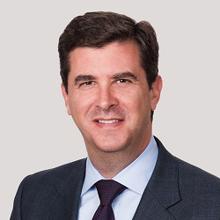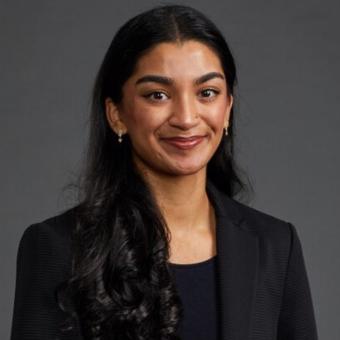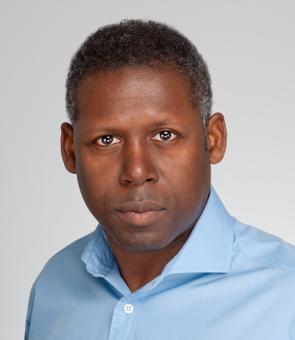Jamie Parkinson discusses his career, the firm’s focus, working in London and more
Jamie, firstly can you give us a brief overview of your own career?
I started practice in Washington, D.C. in 1999 and trained with a cadre of very fine criminal defense lawyers focusing on white collar issues such as fraud, corruption, environmental crimes, etc. My work has almost always involved a cross-border element and like many U.K.-based lawyers, I have worked on issues in dozens of countries including India, China, Kazakhstan, the U.K., Egypt, Myanmar, Russia, Colombia, Guatemala, Pakistan, Iraq, etc. Over time, my partners and I have been privileged to work with some of the finest criminal defense counsel in many jurisdictions globally and developed a strong network of relationships. One of the most rewarding aspects of my work has been collaborating with superb counsel in jurisdictions where the legal regimes and traditions differ significantly from the U.S. – all while advancing the shared overall goal of defending our client.
What attracted you to a career in Law?
Unlike many, I did not wake up one day as a child and tell myself I wanted to be a lawyer, but I have always been an advocate and a problem solver, so my attraction to a career in law was in part that it permits me to do both. I find great motivation in the very human issues that are laid bare in an enforcement action, the fact development, and the policy questions. There is also a particularly American feature: We are acutely aware of the push and pull between our rights as private citizens on one side and the authority of the state on the other. Some areas of law embody this push and pull, and enforcement defense is one such area.
Can you tell us a bit about Buckley Sandler?
Founded during the white hot moments of the financial crisis, we focus on three main areas: (1) white collar criminal and civil enforcement defense for corporates and individuals; (2) complex civil litigation particularly but not exclusively stemming from the fallout of the financial crisis, mostly for banks and other financial institutions; and (3) regulatory and compliance counseling and transactions work for banks and other financial services firms, which have experienced an almost comprehensive overhaul of the applicable regulatory regime. When I joined in 2010, there were 70 lawyers at the firm and we are now 160 lawyers practicing in Washington, D.C., New York, Los Angeles, Chicago and London. We count among our clients, 21 of the 25 largest banks in the U.S., the top 10 credit card issuers, the top mortgage originators and servicers, seven of the top 10 auto finance originators, and numerous mid-size banks, fintech companies, private equity firms, and other investors in the financial services industry. We are also involved in numerous complex international enforcement actions, requiring collaboration with counsel in multiple jurisdictions. With all of this in mind, however, we have retained cohesion during this growth and maturation that allows us to be a close-knit group. I think our clients see and value (and benefit from) that cohesion.
One noteworthy thing about our firm is our commitment to being a family-friendly workplace – in reality and not just in policy. Women comprise just over half of our partners who are under 50 and, at this point, every woman who has left for maternity leave has returned to practice at the firm.
Do the different offices in the US have different specialisms?
We work to ensure that each office offers services in our three key areas – financial services, government enforcement, and litigation – and we are very well-integrated across the firm, so are able to offer the full resources of the firm, no matter which office may be needing the particular specialism at a given moment. That said, our London offering is very targeted, providing US-qualified criminal defense capability in London, but also serving as the gateway to the rest of the firm’s capabilities.
How much collaboration is there between the DC, NYC, LA & Chicago teams?
We are totally integrated among offices and I am in near-constant contact with lawyers in D.C., New York, Los Angeles and Chicago.
You recently opened an office in London; why now?
A number of factors came together in 2014 that pushed the London office to the fore. First, we saw then and continue to see internationalization of digital commerce and FinTech businesses. More and more U.S. businesses are reaching outside the U.S. to expand their FinTech offerings, while more non-U.S. eCommerce offerings are evaluating the U.S. market. We are market leaders in the eCommerce space, and so are very well-positioned to assist non-U.S. companies engage with the complex regulatory regime in the U.S. Second, our enforcement defense practice – particularly our Foreign Corrupt Practices Act work – has become far more internationalized than it was ten years ago. In a prior day, the U.S.-side was the only enforcement action around, but now an FCPA case will almost certainly involve at least one non-U.S. enforcement agency, and in some cases multiple non-U.S. agencies. Engaging in London has enabled us to enhance our FCPA, sanctions and AML advisory and investigations practice. Finally, our Firm is a spirited and creative place, and our London offering is emblematic of that spirit.
What were the main challenges you faced?
Because we are new to London and indeed a new Firm, we therefore don’t carry the decades of brand recognition that are implicit in certain law firms’ names. While this allows a clean slate and no preconceptions, it does also present certain challenges. I have found these challenges readily surmountable with a very old-fashioned approach: in-person meetings and earning the trust of potential clients and referral sources. A big part of my role here is to meet people and very candidly, to proselytize for Buckley Sandler, describing our history, services, experience, etc. We provide in-person U.S. law briefings on key topics that are useful for U.K. lawyers to know, such as how the U.S. class action system works, or how the U.S. bank regulatory system works. This provides something valuable that enables a U.K. lawyer to issue spot for their clients, and in doing so, demonstrate the capacity we have to handle very complex and consequential U.S. legal issues.
How have you been received by the London legal community so far?
I have found the London legal market to be exceptionally welcoming and friendly. People are very interested in our focus and commitment to London-sourced U.S. legal services, and have been open to hearing about how the London office has been going.
How is the team structured in the UK?
Our London clients and U.K. law firm relationships immediately experience our Firm’s collaborative culture and integrated services. While we are structured very simply in the U.K. – I am for now the only person here – the larger picture is that our London offering is premised on providing instant access to U.S. legal advice. Thus, if I am not in a position to answer something myself, I will coordinate a response from the right U.S. partner as quickly as possible. In some cases where the type of work is beyond what we offer (estate planning or immigration advice, for example), I will coordinate a referral out of the firm and ensure continuity of quality and service.
What services are you primarily offering out of London?
The work I do personally involves enforcement defense, internal investigations and compliance counseling on FCPA, sanctions and AML issues – all U.S. law issues. However, the entire Buckley Sandler U.S. team stands alongside me and together we coordinate very closely on various U.S. law projects. For example, our London office has been involved in coordinating advice to a non-U.S. FinTech company buying a U.S. company; numerous items of civil litigation in California involving non-U.S. persons; working to obtain discovery from individuals located in the U.S. in support of a non-U.S. dispute; internal investigations involving non-U.S. institutions where there are multiple U.S. regulators evaluating conduct that occurred here in London; arbitration matters where there is an actual or potential criminal investigation in parallel; sanctions advice both for U.S. persons and for non-U.S. persons seeking to understand the applicability of the OFAC regulations to their conduct; and the list goes on.
What are your views on Brexit and how do you think it will impact on the firm?
London has been the global hub of capital and banking since the discount houses of Lombard Street acted as glue for international trade. Any retrogression to a more splintered financial world as a result of Brexit might temper some elements of this, but we believe Brexit will not fundamentally alter London’s importance and the City will thus remain the undisputed global capital of finance. Brexit will have little impact on our firm.
What are the aims and ambitions for the London office over the next few years?
Our core business premise is this: A U.S. legal perspective is an indispensable element to an increasing number of UK-based financial services firms, large and small, and U.S. regulators are now involved in most major enforcement defense matters, even if the conduct occurred in London or otherwise outside of the U.S. This requires experienced U.S. counsel – ideally located in London – on both the non-contentious regulatory side and the investigations and enforcement defense side. Our commitment to London is demonstrated and we have become a familiar presence in the market. This will result in a broader base of clients among the non-U.S. financial services sector, and deeper relationships with our very strong network of law firm relationships in London and Europe. Our ambition is to be a go-to firm to provide this experienced U.S. counsel.











